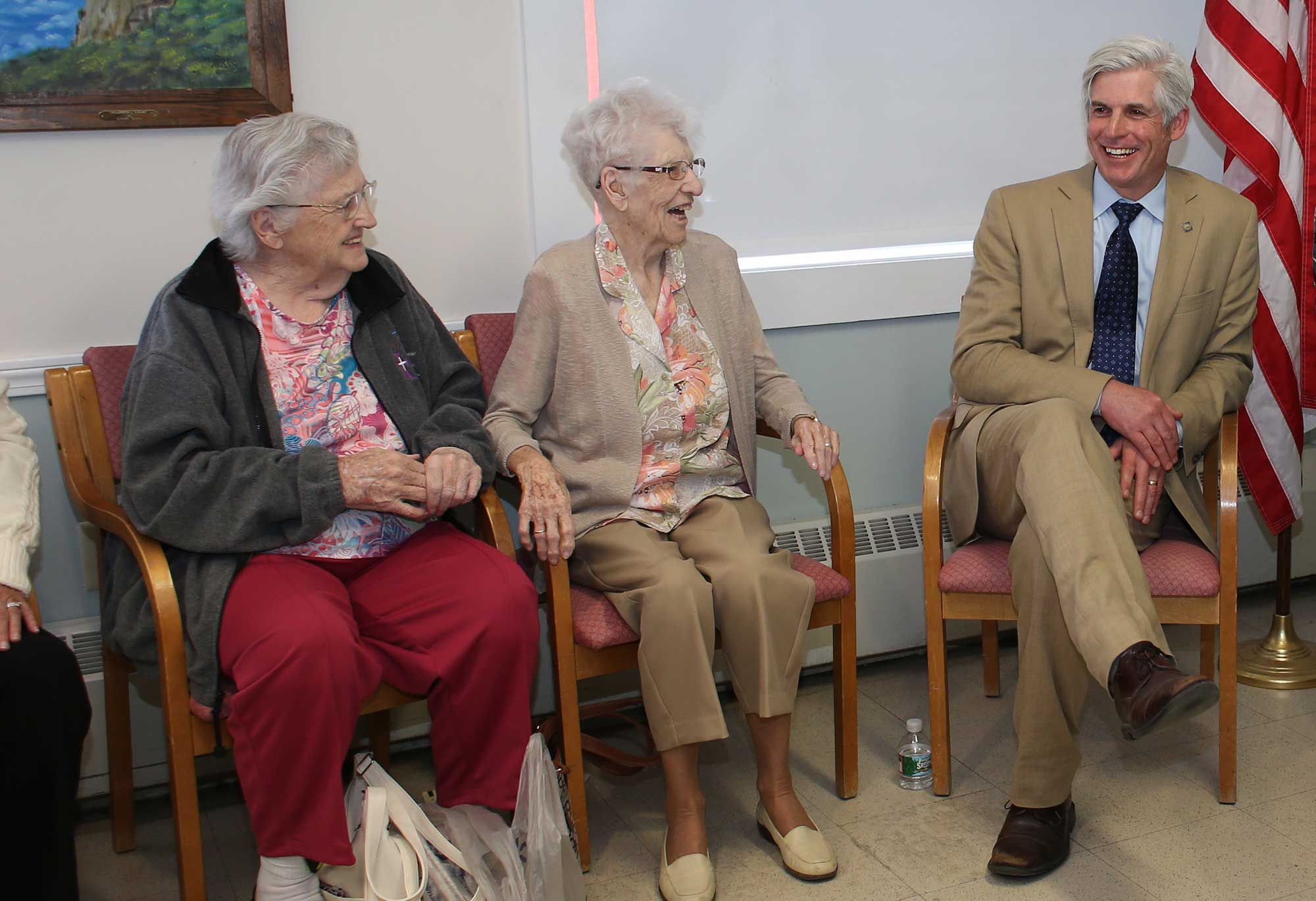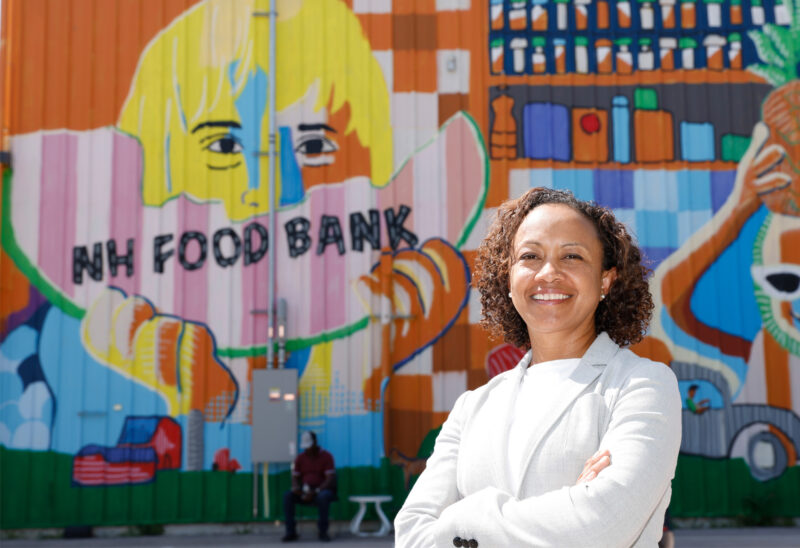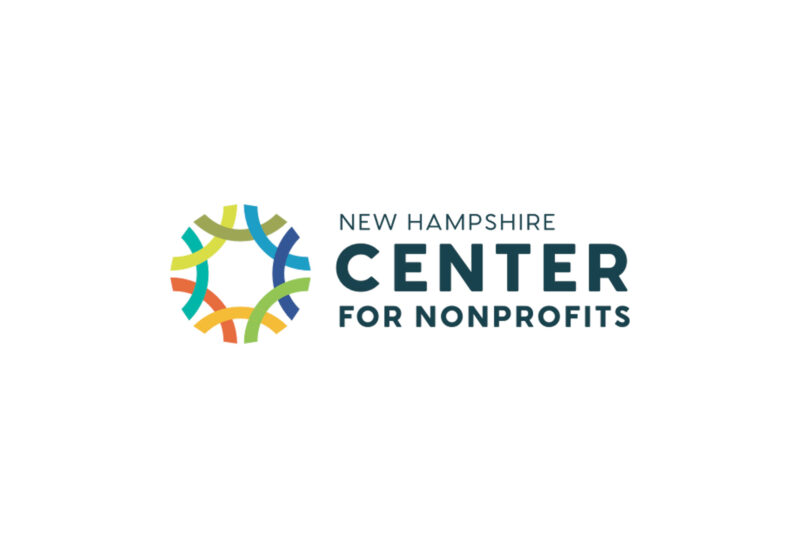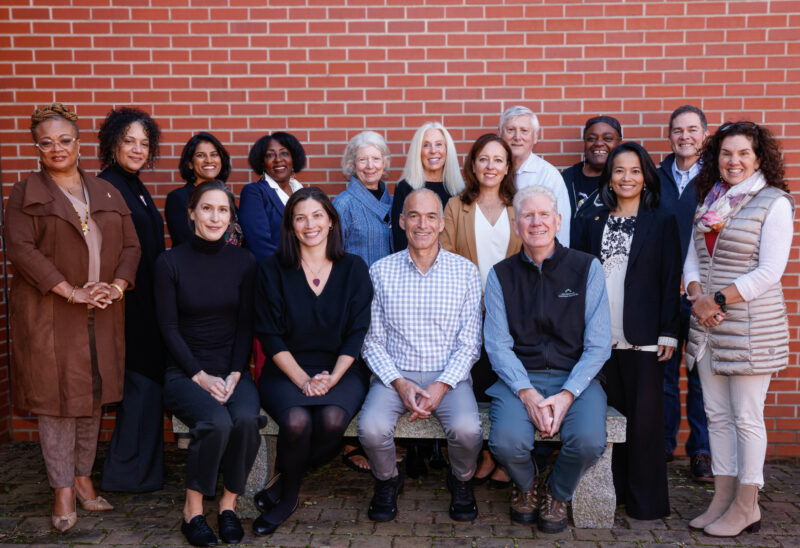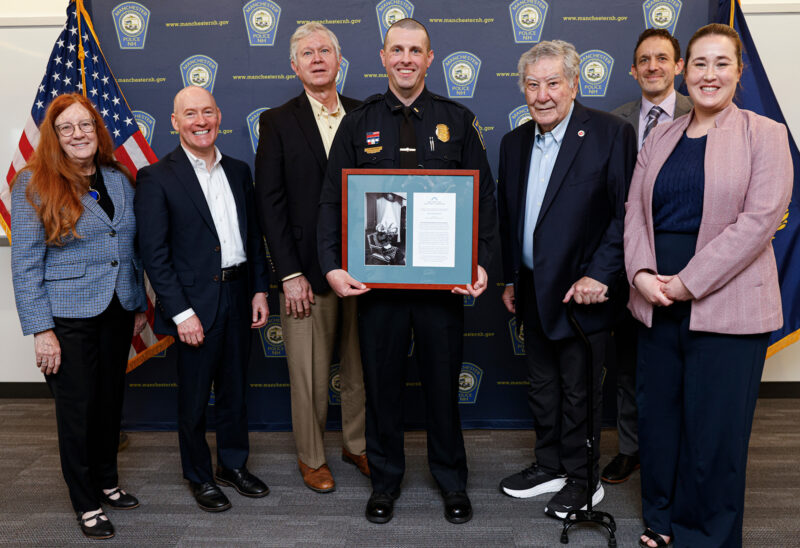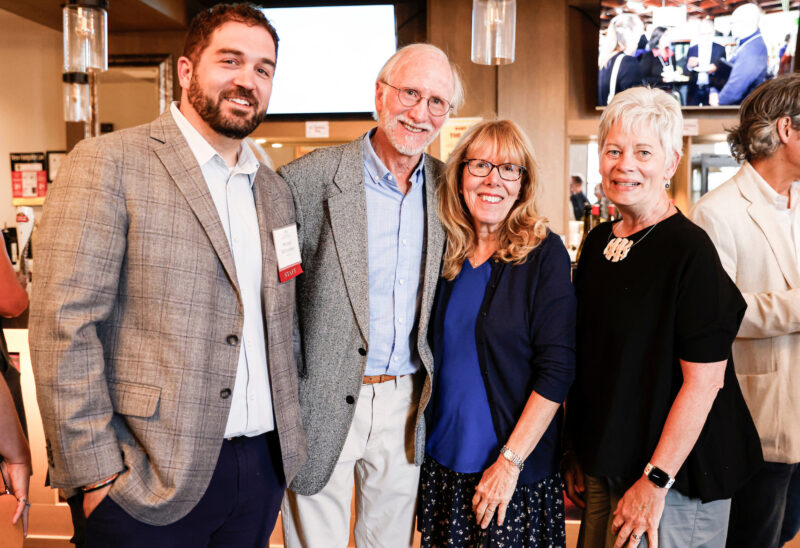The Caroline and Martin Gross Fellowship gives one public-sector leader each year the opportunity to attend a three-week “Senior Executives in State and Local Government” seminar at the John F. Kennedy School of Government at Harvard University. Craig Welch, executive director of the Portsmouth Housing Authority and 2016 Caroline and Martin Gross Fellow, reflects on the experience.
It’s hard not to celebrate the fact that New Hampshire has among the lowest rates of poverty and unemployment in the United States and that we are frequently cited as one of the best places in the nation to live, work and play.
Unfortunately, this otherwise good news gives little comfort to the more than 100,000 people — including 28,000 children — who are living in poverty in New Hampshire.
Despite the United States being known around the world as the land of opportunity and upward mobility, slightly more than half of people who grow up in the bottom 20 percent of income earners in this country will never make it to the middle 20 percent or enjoy the opportunity and security that is afforded to the American middle class.
Poverty is often a temporary condition when people are able to increase their incomes and assets. Far too often, however, thousands of families, children and seniors live in a chronic state of poverty that can last through their childhood, their lifetimes and through generations.
In fact, despite the enormous wealth that is created in United States, our overall poverty rate is far above the average in the industrialized world. In real numbers, this means that if the U.S. poverty rate was to be on par with average rates in the rest of the industrialized world, an estimated 19 million people would have to find a way to move out of poverty.
I’ve spent much of my career trying to understand how policy, programs, brain development, behavioral science and other factors can help alleviate chronic scarcity in our communities. But it wasn’t until after my three weeks at the Kennedy School of Government courtesy of the Caroline and Martin Gross Fellowship and the New Hampshire Charitable Foundation that I started thinking more seriously about how important it is to have strong leaders at all levels and in all sectors if we are going to solve this challenge.
The rich content of the Harvard case studies, the friendships I made with so many amazing people and the gift it was to take pause from my daily work to discuss the important topics of the day exceeded my expectations of the program. However, the greatest lessons from my time at the Kennedy School turned out to be much more personal.
As a leader of an organization and in my community, I struggle to find the balance between working with zeal to help solve tough problems and attending to my own family and health. Despite the desire and urgency that I feel to improve the lives of our struggling neighbors, I frequently feel that I lack the capacity to do all that I want to do while still being the best father and husband that I want to be.
At the Kennedy School, I realized that the notion that I lack the personal and professional capacity to do all that needs to be done is the wrong frame of reference. The more important thing to understand is that life is not framed by whether or not you have the capacity to accomplish all of your goals; it’s about being very intentional when making choices about what to work on every day.
The concept of making choices may seem simple and easy to understand, but the idea is also profound. In making a choice about what you are going to work on today and being clear about how those choices support your most important goals, you grab the power to be in command of your time, your brainpower and your priorities.
The same principal holds true with the concept of authority. Most people see authority as assigned by a job title, staff resources or budget responsibility. This is true, but there is so much authority that just needs someone to reach out and grab it. So often, people are thirsty for someone competent to take the authority to solve problems. Assuming authority is not always celebrated, and it comes with risk. But stepping into that void is both admirable and necessary.
This fellowship also helped me gain a much greater sense of perspective. As the executive director of the Portsmouth Housing Authority, I lead an enterprise that houses 1,000 low-income seniors, families, children and people with disabilities in 12 different properties in the city. Some days the job seems overwhelming and the problems intractable. But this fellowship gave me a dramatically different perspective.
When you are in class with the director of security of the New York City school department, responsible for safety of 1 million school children in 1,500 buildings, or a congresswoman in the opposition party in Venezuela, a nation in social and financial free-fall, or the deputy chief of the New York City Police Department who was on duty on September 11, 2001, the job stress you experience becomes, shall we say, right-sized.
Another profound idea that stays with me every day came from Professor Marty Linsky who defined leadership as “the ability to make people uncomfortable at a pace they can absorb.” How true. If you are truly leading, you are guiding, coaching, creating a common vision and motivating people to get there. The antithesis of this kind of leadership is telling people only what they want to hear.
This program reinforced for me that leaders are people who not only set a vision for a brighter future but, in leading the way, can sometimes make people feel vulnerable, worried or risk-adverse. I learned that leading change is about moving people and organizations to willingly accept this discomfort in order to achieve a new goal. At the Portsmouth Housing Authority, we decided to set a goal to transform from a “transactional” organization that was focused inward on compliance and business systems, to a “relational” organization focused on our clients and improving the quality of their lives. This was not easy. But we understood that adapting to change takes time, and even causes grief and fear when you leave the old way behind and do something new. That transition continues to be a work in progress, but today Portsmouth Housing is an organization that has achieved our goal of being focused first on improving the quality of life of the people that we serve, and I’m so proud to be a part of it.
We talked at Harvard about how leading too aggressively causes people to lose their drive to participate. And leading too softly — by avoiding conflict, candor and tough decisions that create discomfort — just maintains the status quo.
This idea has framed my post-fellowship experience in how I lead and at what pace. The art of this is hard to get right, but when you do get it right you continually move in a more positive direction and your team does the same.
And perhaps the most life-changing thing that I learned about leadership at the Kennedy School is the importance of self-care. Our class had the honor of being the very last class taught by the esteemed Professor Ronald Ferguson, whose remarks stay with me today. He talked about the monumental task that leaders face to address a growing undercurrent of despair among millions of Americans, and how that is work that will last our lifetimes. The only way that this work can be done on a sustained basis is if we all take care of ourselves first.
So I know I’m not alone when I’m working on seemingly intractable problems with the most vulnerable people in our society, or when I feel vulnerable or experience my own version of frustration and despair. Many of us habitually put other people’s challenges ahead of our own. But we need to remind ourselves that we must stay healthy and of sound mind if we are going to change the world.
I didn’t expect to come away from a summer at a world-renowned institution like Harvard with a new pledge about personal wellness. But the Caroline and Martin Gross Fellowship is all about developing leaders with a long-term impact for New Hampshire, and that’s what I’ve pledged to be. The fellowship has helped me to address these issues critical to New Hampshire communities — poverty, inequality, economic mobility — with renewed strength and commitment for the long haul.

